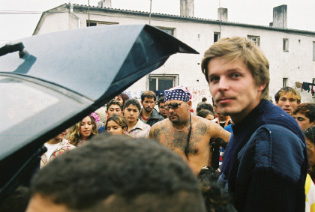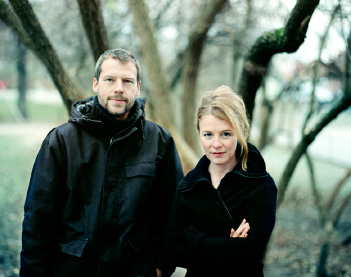EXILE FAMILY MOVIE
Austria, 2006
90 minutes
written and directed by Arash

An Iranian family living in political exile in Europe and America decides to organise a secret meeting with the rest of the family still living in Iran. They haven't seen each other for nearly two decades, but other than that they are a normal big family: sweet grandfather, smart grandmother, beautiful aunts, loud cousins. Despite all the dangers, the long awaited, tearful reunion takes place after 20 years of separation in Saudi Arabia, in a small hotel room. The family members living in exile pretend to be Muslim pilgrims in order to be allowed to enter the holy cities of Medina and Mecca. This is entirely personal story about the director himself and his family: “I had to make this film, despite the dangers involved with shooting, and regardless of the dangers the finished product would represent for me. The film is a product of the inner compulsion, born of a need to continue struggling for humanism, as my parents have done their entire lives, with the means available to me in order to honor them and others like them in the process.”
www.exilefamilymovie.com
SELECTOR'S WORD: „Funny, touching and intelligent. Funny because of the diversity of individual personalities, believers or non-believers. Touching because they meet after a long time and maybe for the last time. Intelligent because Arash manages to put a personal story into a universal perspective. No wonder this courageous documentary is a hit in the cinemas!“

Arash T. Riahi
Born 1972 in Iran. Since 1982 he lives in Vienna, Austria. Studied Film and the Arts. Has been working for the Austrian Broadcasting Corporation, ORF, since 1995. Works as writer and director for the ORF youth and art departments. Founded the film and media production company "Golden Girls Filmproduction" in 1998. Has written, directed and edited several award-winning short and experimental films, music videos and commercials. Directed two cinema documentaries, and works now on the preproduction of his first feature fiction film.
Selected filmography
EXILE FAMILY MOVIE, 1994 - 2006
THE SOUVENIRS OF MR. X, 2004
LET THE WORLD END (Eclipsa-n-am ce face), 1999


















